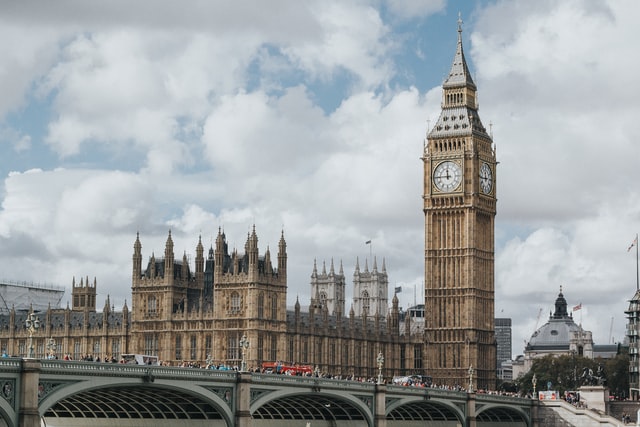The pendulum of British politics runs between the right-wing and the left-wing. These two sides present conflicting or contrasting ideas regarding how a country must be governed by a particular state of people’s livelihood. And they are the most influential political states that one opts to adopt in the political arena.
History shows that the terms left and right-wing originated in the early days of the French Revolution in 1789. They were used to describe the seating arrangement in the French constituent assembly, and their usage spread in many nations. The British adopted these terms in the 20th century and used them to describe political identities [Source]. This article will shed more light on what it means to be left-wing in British politics.

What is Left-wing in Politics?
According to Wikipedia, left-wing politics “typically involve a concern for those in society whom its adherents perceive as disadvantaged relative to others as well as a belief that there are unjustified inequalities that need to be reduced or abolished” [Source]. Economics Professor Barry Clark describe left-wing followers as people who “claim that human development flourishes when individuals engage in cooperative, mutually respectful relations that can thrive only when excessive differences in status, power, and wealth are eliminated”.
Also, the left-wing is “characterized by an emphasis on ‘ideas such as freedom, equality, fraternity, rights, progress, reform and internationalism’” [Source]. Left-wing politics is famous for supporting social equality and egalitarianism and is against social hierarchy, which is blamed for oppressing other citizens in society.
What is Right-wing in Politics?
In politics, the right-wing is “characterized by an emphasis on ‘notions such as authority, hierarchy, order, duty, tradition, reaction and nationalism’”[Source]. Someone who supports tradition and authority” [Source]. In differentiating right-wing and left-wing, it is argued that “People on the right believe that the best outcome for society is achieved when individual rights and civil liberties are paramount and the role – and especially the power – of the government is minimized” [Source].
What does Left-wing mean in British politics?
The left-wing in British politics consists of many political parties. The largest one is the Labour Party, which has around 430 000 members, making it one of the biggest parties. The other left-wing political parties include the centre-left Scottish National Party, the centre-left Social Democratic and Labour Party of Northern Ireland, and the centre-left Plaid Cymru [Source].
In British politics, “The left believes the government should play an active role in regulating the economy and providing welfare (NHS, benefits)” [Source]. This shows that leftists are concerned more about social welfare and regard it as the primary duty of government to look after its people before anything else. As long as the people are suffering, the government is not fulfilling its duties as the leadership of a nation. The left-wing is also known for supporting socialism which brings equality and benefits to every member of society. According to leftists, inequality is an enemy of society. It deprives humans of enjoying the fruits of their hard work.
Also, “Leftists tend to be hostile to the interests of traditional elites, including the wealthy and members of the aristocracy, and to favour the interest of the working class” [Source], which emphasizes why the left-wing is inclined more toward socialism. “Left-wing beliefs are liberal in that they believe society is best served with an expanded role for the government”.
Other popular beliefs of leftists include:
- Being against income equality.
- Supporting heavy taxation of wealthy individuals.
- Upholding access to healthcare as a human right.
- Allowing citizenship for undocumented immigrants.
- Establishing free public education.
- Supporting the LGBT community
- Supporting gun control laws.
The left-wing relies on ideologies such as social democracy, Federalism, Socialism, Communism, Collectivism and Marxism, and is against voter ID laws and supports minority groups’ rights. This wing is very vocal in opposing the death penalty, which is described as barbaric and does not deter crime [Source].
Are British Newpapers Left-wing or Right-wing?
British Newspapers can be generally divided into two categories when it comes to their political stance – left-wing and right-wing. The left-wing newspapers in Britain include The Guardian, The Daily Mirror, The Morning Star, The Independent, and The New Statesman. On the other hand, the right-wing papers are represented by The Daily Mail, The Sun, The Daily Telegraph, and The Express.
Some of the most popular left-wing papers in Britain are:
The Guardian – It has been described as “one of the country’s leading left-of-centre broadsheets” and has a daily readership of around 3.5 million people. It is known for its left-wing stance on issues such as the Iraq War, climate change, and social inequality.
The Daily Mirror – It is a tabloid newspaper with a left-wing political leaning. It has a daily readership of around 0.8 million people and is known for its support of the Labour Party.
The Morning Star – This is a left-wing daily tabloid newspaper with a circulation of around 20,000 copies. It is known for its support of the Communist Party of Britain.
Some of the most popular right-wing papers in Britain are:
The Daily Mail – It is a right-wing tabloid newspaper with a daily readership of around 1.2 million people. It is known for its support of the Conservative Party and its opposition to immigration.
The Sun – It is a right-wing tabloid newspaper with a daily readership of around 2.6 million people. It is known for its support of the Conservative Party and its opposition to the European Union.
The Daily Telegraph – It is a right-wing broadsheet newspaper with a daily readership of around 2.3 million people. It is known for its support of the Conservative Party and its opposition to the Labour Party.
The Express – It is a right-wing tabloid newspaper with a daily readership of around 0.4 million people. It is known for its support of the Conservative Party and its opposition to immigration.







































